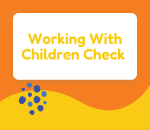Celebrating Nature Play Week 2025: A Guide for Educators
Nature Play Week is an exciting annual event that encourages children to connect with nature through outdoor play. In 2025, It will run from April 2 to 13, providing Early Learning Centres (ELCs) and educators with a fantastic opportunity to engage children in nature-inspired activities. What is Nature Play Week? Nature Play Week celebrates outdoor…
Nature Play Week is an exciting annual event that encourages children to connect with nature through outdoor play. In 2025, It will run from April 2 to 13, providing Early Learning Centres (ELCs) and educators with a fantastic opportunity to engage children in nature-inspired activities.
What is Nature Play Week?
Nature Play Week celebrates outdoor play, encouraging children to engage with nature and explore the world. The initiative promotes unstructured play in natural settings, helping children develop problem-solving, creativity, and physical coordination while fostering a love for the environment. Throughout this week, educators can help children build a deeper connection to nature and the environment, which is vital for their development.
The History of Nature Play Week
The Nature Play movement created Nature Play Week to address the growing concern about children’s decreasing engagement with nature. Research shows that children today spend much more time indoors and on screens, which leads to a disconnect from the natural world (Nature Play Australia, 2024). This initiative encourages children to play and learn outside, inspiring healthier, more active lifestyles. The event raises awareness and fosters a greater appreciation for the environment each year.
Why is Nature Play Week Important?
Nature Play Week is crucial for child development. Some of the key benefits include:
- Physical Development: Outdoor play helps children develop motor skills and promotes physical health (Barton & Pretty, 2010).
- Mental Health: Time spent in nature reduces stress and enhances emotional well-being, improving mood and overall mental health (White et al., 2013).
- Social Skills: Nature-based activities encourage teamwork, communication, and problem-solving, providing valuable social learning opportunities.
- Environmental Awareness: Engaging with nature helps children develop an early respect for the environment and an understanding of sustainability.
Activities for Nature Play Week
Here are some engaging activities that educators can incorporate during Nature Play Week:
- Nature Scavenger Hunts: Create a list of natural items for children to find, such as leaves, rocks, pinecones, or flowers. This encourages exploration and observation.
- Building with Natural Materials: Let children use sticks, leaves, and stones to create structures or art. This will foster their creativity and problem-solving skills.
- Gardening Projects: Let children plant seeds and care for plants. Gardening teaches them about plants’ life cycles and the importance of nature.
- Nature Art: Create art projects using natural objects like leaves, flowers, and twigs. This encourages creativity while connecting children to their environment.
- Outdoor Exploration Stations: Set up exploration stations for children to engage in activities like bug investigations, plant identification, or sensory play with natural materials.
How to Get Involved
If you are an educator or part of an Early Learning Centre, there are many ways to get involved in Nature Play Week:
- Plan Outdoor Activities: Organise nature-based activities, encouraging children to explore and learn outdoors.
- Use Available Resources: The official website offers guides, promotional materials, and activity ideas to help you maximise Nature Play Week.
- Join the Nature Play Community: Become part of the Nature Play network, where you can share ideas and connect with other educators and organisations promoting nature-based play.
- Encourage Family Participation: Share nature activity ideas with families and encourage them to engage with nature outside school hours. Simple activities, like nature walks or backyard exploration, can be opportunities for family bonding and outdoor learning.
Official Website & Resources
For more information on Nature Play Week 2025, including event details, resources, and how to get involved, visit the official website: Nature Play Week. The website offers a variety of free resources, including activity suggestions, promotional materials, and tips to help make your Nature Play Week experience successful.
Conclusion
Nature Play Week is a fantastic opportunity for educators to help children build a connection to the natural world. Participating encourages outdoor play and physical activity and promotes social, emotional, and cognitive development. Make the most of the event by using the resources available on the official website and bringing nature-inspired experiences to your centre or classroom. This is an ideal time to foster a love of the outdoors that will last a lifetime.
References:
- Barton, J., & Pretty, J. (2010). What is the best dose of nature and green exercise for improving mental health? Environmental Science & Technology, 44(10), 5367–5373.
- Nature Play Australia. (2024). About Nature Play Week. Retrieved from https://natureplayweek.org.au/
- White, M., Alcock, I., Grellier, J., Wheeler, B., & Hartig, T. (2013). Spending at least 120 minutes a week in nature is associated with good health and well-being. Scientific Reports, 3, 1-7.
Connecting Teams, Talent & Educators
Thank you for reading our latest blog. If you are a candidate, click to view our Permanent Jobs or explore our latest Temporary Opportunities.
If you are a client looking to find your next permanent or temporary staff member, Entrée Early Years can help. Hire or Book Early Childhood Staff today!






